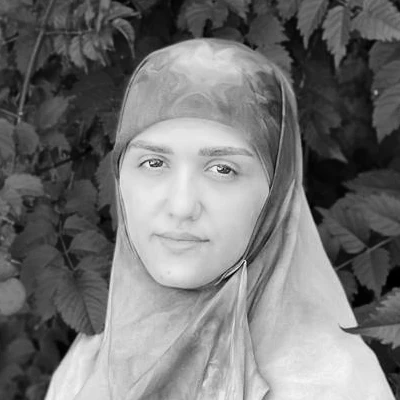Syria's rapid collapse – driven by internal decay, external aggression, and shifting alliances – has plunged it into uncertainty, leaving the nation's fate entangled in regional and global power struggles that only its people can resolve.

The Cradle

Questions about the future of governance and alliances now loom large, with their answers set to play a pivotal role in shaping the destiny of West Asia.
Reigniting the fire
During the speech on 26 November in which he announced the ceasefire with Lebanon, Israeli Prime Minister Benjamin Netanyahu issued a stern warning to Assad against "playing with fire" and claimed that “Israel is changing the face of the Middle East.”
This declaration appeared to have ignited a well-coordinated assault by NATO-backed armed factions against the Syrian government. Leading the charge was Hayat Tahrir al-Sham (HTS), helmed by Ahmad al-Sharaa, also known as Abu Mohammad al-Julani – a former Al-Qaeda operative and founder of its Syrian branch and precursor to HTS, the Nusra Front.
The offensive started in Syria’s second-largest city and economic backbone, Aleppo, and swiftly cascaded through provinces, including the rest of Idlib, Hama, Daraa, Suwayda, Homs, and ultimately Damascus. By the 12th day, the capital had fallen, and Assad, along with his family, was granted asylum in Moscow.
Thirteen years after the initial uprisings, Syria has plunged into a darker abyss, leaving its citizens fearful of what lies ahead. The rise of armed factions, bolstered by Turkish sponsorship and harboring extremist undertones cloaked in religious rhetoric, raises alarm over a potential descent into sectarian chaos.
Despite Julani’s attempts to reassure the international community – claiming the era of “beheadings” is over – Syrians, especially minorities, remain wary, having witnessed the devastating infighting among similar factions in the past.
Why did the government collapse so quickly?
Decades of corruption and repression under the Assad family eroded public trust and left the state’s institutions fragile. The Assad family, which has ruled since 1971, was an example of the Arab governments that failed to meet the aspirations of their people, ruled with the logic of repression, and protected the system of corruption.
Despite surviving earlier conflicts with the help of its allies, the Syrian government failed to implement meaningful reforms that could rebuild its foundation.
The reprieve granted to Damascus after the defeat of the Islamic State of Iraq and Syria (ISIS) proved fruitless. Assad’s government failed to transition toward genuine reform or foster a peaceful transfer of power, leaving it vulnerable to renewed unrest.
The offensive came at a moment of heightened regional instability. Years of sanctions, Israeli aggression, and western interference had weakened Syria’s defenses. Even Assad’s allies expressed shock at the Syrian army’s swift collapse – despite providing intelligence. Iranian Foreign Minister Abbas Araghchi noted:
"We were surprised by the weakness of the Syrian army and the speed of field developments, and Assad expressed his surprise at the weak performance of his army during his last meeting with the senior adviser to the Leader of the Revolution, Mr. Ali Larijani."
Armed factions executed a meticulously planned blitzkrieg, employing heavy weaponry – some allegedly provided by Ukraine – and leveraging advanced western military tactics. Coupled with a media onslaught that sapped morale, Syria’s defenses crumbled in quick succession.
Key Syrian allies, including Iran and Hezbollah, were preoccupied with other conflicts, such as supporting Gaza and countering Israeli aggression in Lebanon. Russia, entangled in its war with Ukraine, withdrew key naval assets from the Syrian port city Tartous and refrained from committing significant reinforcements.
Turkiye’s geopolitical interests, particularly regarding Kurdish autonomy and refugee burdens, incentivized its support for toppling Assad's government. Meanwhile, Persian Gulf states, once reconciliatory toward Damascus, appeared to pivot, aligning with broader efforts to redraw the regional map.
What lies ahead?
As armed factions consolidate control over Damascus, Syrian interim Prime Minister Mohammed al-Jalali has called for unity, urging the preservation of state institutions. However, the capital remains mired in chaos.
Reports of looting, sectarian reprisals, and forced migrations have intensified fears of prolonged instability. The Iranian embassy and homes linked to government loyalists have been targeted, further stoking sectarian tensions. All Iranian staff have already vacated the Sayyida Zainab shrine on the outskirts of the city, and the site has, until now, been left unharmed.
Questions about governance persist: will Syria’s new leadership adopt a secular framework, or will it succumb to extremist ideologies? A high-stakes diplomatic meeting involving Turkiye, Iran, Russia, Saudi Arabia, and Qatar was held in Doha to discuss the country’s future.
Statements from the Astana process and Arab foreign ministers emphasized the need for a political transition based on Security Council Resolution 2254. Leaks suggest Assad’s departure may have been part of a US–Russian quid pro quo tied to Ukraine, though these claims remain unverified.
Syria’s fall will significantly weaken the Axis of Resistance, severing vital supply lines to Hezbollah and undermining regional coordination. Israel’s decision to occupy Syria’s Mount Hermon and establish a “buffer zone” adds another layer of complexity. The “new Syria” faces a critical choice: resist foreign encroachments or risk fragmentation.
Syria’s future relies on its ability to reconstruct itself as a unified and sovereign state. For the Axis of Resistance, a stable Syria is indispensable. However, external powers – chiefly the US and Israel – favor a fragmented and weakened Syria to thwart regional opposition to their ambitions. The answers to these pressing questions will ultimately depend on the Syrian people.
Only they can determine the fate of their homeland – a nation long celebrated as a cradle of civilization, now facing an uncertain dawn.

No comments:
Post a Comment